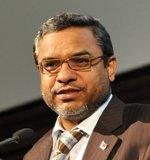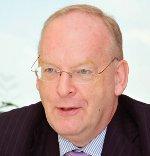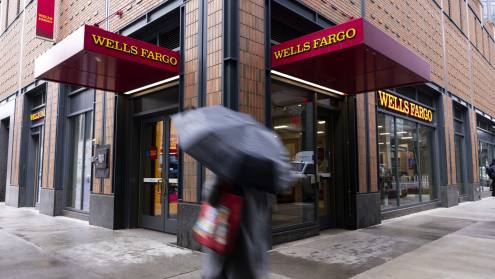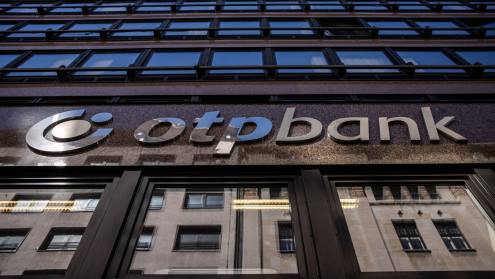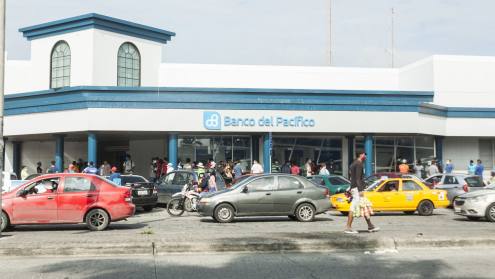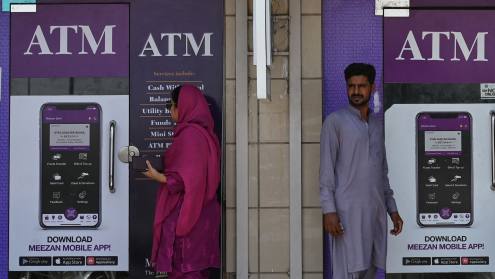New competitors are throwing down a challenge to the largest Islamic finance centres in Asia and the Gulf: Turkey, Libya, and even Dublin and Luxembourg, are looking to centralise sharia-compliant service offerings under one roof.
These putative Islamic finance hubs will have their work cut out if they are to supersede Bahrain and Malaysia. Over the past three decades, these twin giants have created a solid underpinning for their sharia sectors, erecting a financial architecture to encourage innovation and build investor confidence.
Bahrain's status as an Islamic financial centre dates back to the Gulf country's emergence as an offshore banking region in the 1970s, when the Bahrain Monetary Agency (BMA) - now the Central Bank of Bahrain (CBB) - took the initiative to create a mechanism to invest the surplus liquidity of the region's oil boom. The tiny island state swiftly took over from civil war-wracked Beirut as the Middle East's major financial centre.
Bahrain's elevation to financial hub status paved the way for its subsequent evolution into an Islamic finance centre in the 1980s. In 1979, Bahrain Islamic Bank, the first Islamic commercial bank in the country, was founded.
Over the next 30 years, Bahrain built up the largest concentration of Islamic financial institutions (IFIs) in the world, including commercial, investment and leasing banks, insurance companies and mutual funds. Critical mass is a key feature of the world's most successful financial centres. With more than 400 licensed financial institutions, Bahrain can draw on a large pool of local talent and liquidity to support its Islamic finance industry.
Bahrain now boasts 27 Islamic banks with $24.8bn in assets, along with nine Islamic insurance companies.
First-mover advantage
Yet back in the 1970s, when Bahrain took the lead in adopting the concept of Islamic finance, it stood alone, says Khalid Hamad, executive director of banking supervision at the CBB and chairman of the Manama-based International Islamic Financial Market (IIFM).
"Bahrain took the leadership role, nurturing and developing Islamic finance to the extent that we are now used as a benchmark whenever other countries want to develop Islamic finance in their own markets - they come and visit us to see how we did it," says Mr Hamad.
From the outset, the BMA/CBB took a holistic approach to the development of Islamic finance, championing a vision that embraces a strong regulatory framework, a full complement of support institutions and a climate conducive to product innovation.
"Our approach is based on four principles: innovation, the availability of skilled resources, strong government support and robust regulation," says Mr Hamad.
Innovation is critical to Bahrain's vision, combined with a clear focus on research and education as part of a core strategy to develop the human capital for the Islamic finance industry. "In 2006 we established the Waqf Fund, an endowment capital fund, and invited Islamic banks and conventional banks with Islamic windows to participate. The fund supports and finances training, education, research and other development in Islamic finance. The objective of the fund is to enhance existing Islamic finance training and education programmes as well as introduce more [of them]. It also contributes into the further development of Islamic finance regulatory and market practices through a round table discussion process and research projects," says Mr Hamad, who also chairs the Waqf Fund.
Bahrain's institutional backbone has helped to forge its Islamic finance superpower status. One of the most important parts of its institutional apparatus is the Accounting and Auditing Organisation for Islamic Financial Institutions (AAOIFI), established in 1990 as an international standard-setter for IFIs in the field of accounting, auditing, governance and transparency. One of AAOIFI's key roles is to unite the opinion of religious scholars, through its sharia board.
In order to develop an active secondary market for short-term sharia-compliant treasury products, the Bahraini authorities created the Liquidity Management Centre in 2002, followed by the International Islamic Rating Agency in 2005. The IIFM, which started operations in 2003, provides a co-operative framework to ensure the continued growth of an Islamic financial market with a primary focus on the standardisation of Islamic products, documentation and related processes.
"We strongly believe that infrastructure is important for the successful future of Islamic finance," says Mr Hamad. "In the West, many similar organisations, such as the Basel Committee, were established as a response to crises. But our organisations were established from the outset as we didn't want to have to reinvent the wheel - we don't want to react to a crisis, but be proactive."
Strong regulation is a mantra for the Bahrain authorities. The BMA pioneered the development of a comprehensive regulatory framework for Islamic banks in 2001, followed in 2005 by a regulatory framework specific to Islamic insurance and reinsurance (takaful and retakaful) companies.
The holistic approach is central to Bahrain's strategy. "Relative to rivals, there is a more integrated approach to Islamic finance ranging from developed regulations, involvement and interaction with AAOIFI, Islamic finance training through bodies such as the Bahrain Institute of Banking & Finance, right the way through to successful regular issuance of sukuk [the Islamic equivalent of bonds]," says Manfred Maske, managing director of insurance company Legal & General Gulf. "While still under development, there are other initiatives or businesses developing to support the industry, such as attempts to create a more liquid secondary market in sukuk."
Product innovation has been a theme for Bahrain. The BMA/CBB was the first central bank to issue sukuk in 2001 and it is keen to promote Bahrain as a centre for Islamic funds.
This year, the CBB authorised the Hyperion Australian Equity Islamic fund, the first sharia-compliant offshore fund, which is comprised of Australian stocks. According to investment bank Codexa Capital, it chose Bahrain to launch the fund due to the comfort of a jurisdiction offering transparency and global-standard regulation. "Bahrain's stability was also a plus, given the downturn-induced noise and confusion elsewhere," says Codexa Capital CEO Douglas Clark Johnson. "Equally important to us was the clear focus on Islamic products by many service providers in the market."
But Bahrain cannot afford to relax. "Bahrain needs to keep its leadership position, by remaining innovative in terms of products, regulation, training and standards - because the market is growing in the Gulf and new countries are getting into Islamic banking," says Jean-Christophe Durand, BNP Paribas' regional head for the Gulf Co-operation Council countries.
When BNP chose Bahrain as its region centre in the Middle East - creating an Islamic finance unit, Najmah, based there - it noted the quality of the supervisory authorities. "An international bank needs to be confident of the ability and quality of the central bank and all the regulations - and from that point of view we're very satisfied. The other important elements are human resources - we can recruit very competent locals in Bahrain," says Mr Durand.
Malaysia's rise
Bahrain's major rival is Malaysia, now the world's dominant sukuk issuer, having launched its first Islamic debt issuance in 1990 and its first sovereign sukuk in 2002. From the outset, Malaysia has sought to iron out differences in interpretation that have undermined the coherence of Islamic finance offerings elsewhere. A designated judge at the country's high court adjudicates on Islamic finance cases and there are dedicated arbitration rules for Islamic finance under the Kuala Lumpur Regional Centre for Arbitration of Malaysia.
Malaysia was the first to establish overarching sharia advisory councils for the Islamic banking and takaful sectors, as well as for the Islamic capital markets. These councils have earned a reputation for pragmatism that has helped to foster product innovation.
Underscoring this innovative thrust is a solid regulatory framework. The Islamic Financial Services Board (IFSB), founded in 2003 and based in Kuala Lumpur, is an international standard-setting body of regulatory and supervisory agencies established to ensure soundness and stability of Islamic banking, takaful and Islamic capital markets.
In 2006, the Malaysia International Islamic Financial Centre (MIFC) was set up, a joint initiative of the government, regulatory authorities and the private sector to support Malaysia as a hub for sukuk origination, Islamic fund management, Islamic banking and takaful.
Malaysia has developed a liberal investment climate that has brightened its appeal to international institutions. Under the MIFC, all income derived from a business of providing fund management services to local and foreign investors is tax exempt until 2016.
Malaysia has liberalised its foreign exchange rules to make it easier for trading in foreign currencies. Domestic and foreign sovereigns, quasi-sovereigns and multilateral financial institutions (MFIs) may originate foreign currency-denominated sukuk out of Malaysia.
A track record of innovation in Islamic finance products and services has helped. "Malaysia was the first to issue a sovereign sukuk, the first country to have a fully fledged interbank Islamic money market, and the first to introduce Bursa Suq Al-Sila', a web-based commodity trading platform specifically dedicated to facilitate Islamic liquidity management and financing by Islamic banks internationally," says Shariffuddin Khalid, director of the MIFC promotions unit at Bank Negara Malaysia.
Malaysia adopts a progressive sharia framework to further encourage innovation and thought leadership, says Mr Khalid. "A key example is the principle of mutual recognition, where alternative sharia interpretations from recognised schools of thought are allowed to be utilised in product structures that can be brought to the market," he adds.
The country's human capital is a major selling point for the Islamic finance industry. "People are proactive in exchanging views and pushing the boundaries - the availability of training and the exchange of ideas is something often overlooked," says Daud Vicary Abdullah, the Kuala Lumpur-based global leader of Deloitte's Islamic Finance Industry group.
The sharia advisory councils provide a key competitive advantage for Malaysia, through the uniformity of interpretation. "There's a realisation that Malaysia has made adjustments and, though it is viewed as a more liberal jurisdiction, there are always different interpretations under the four main sharia schools," says Mr Vicary Abdullah.
More important, Malaysia has been transparent about the process by which decisions are reached. "The transparency of that process is critical when different sharia schools say different things. Having one overall governing body helps to set the standard for the process," says Mr Vicary Abdullah.</p> <div class="photo_article_left" style="width: 150px;">%%IMAGE%%<span>Daud Vicary Abdullah, the Kuala Lumpur-based global leader of Deloitte's Islamic Finance Industry group</span></div> <p><strong>Enter Dubai</strong>
Bahrain and Malaysia are facing competition from other putative Gulf Islamic finance centres. However, Dubai's attempt to create an Islamic finance hub from scratch has struggled to compete with established centres, even though the Dubai International Financial Centre (DIFC) is regarded as the leading financial centre in the Middle East. From the outset, it was the strategic intent of DIFC to establish itself as the pre-eminent Islamic financing centre in the region.
Dubai has done some groundwork to erect a proper architecture, following Bahrain and Malaysia's leads. For example, it has established the Islamic Finance Advisory Council, which plays a key strategic role in providing advice on Islamic finance and in helping the development of the industry. However, the DIFC has disbanded its Islamic finance unit and is now rethinking its approach to building an Islamic finance centre.
"Islamic finance cuts across all aspects and sectors of the financial services industry. The DIFC is not looking to any specific area of Islamic finance, rather it is looking to support the development of the sharia-compliant financial system as a whole," says DIFC Authority CEO Abdulla al-Awar.
The DIFC's independent regulator, the Dubai Financial Services Authority (DFSA), has put in place a supportive regulatory framework, governing all aspects of Islamic finance in the DIFC. "Its integrated regulatory structure is conducive to the cross-sectoral nature of Islamic finance; providing a level playing field where all institutions are subject to the same standard of regulation," says Mr al-Awar.
There is also an appropriate degree of flexibility built into the regime. The DFSA regulates the operator rather than product, with a focus on regulation of risk management. "This leaves room for product innovation such as Islamic hedge funds and other forms of sharia-compliant securitisation," says Mr al-Awar.
Faced with growing competition, Dubai still needs to adopt a convincing role as an Islamic financial centre. "Dubai needs to come out with something bright and shiny to rival what has been established in Bahrain. It realises the need to raise the bar," says Phil Knowles, head of financial services at KPMG in the United Arab Emirates.
Focusing on Islamic financial services still makes sense for Dubai as there is a clear synergy between its status as an international financial centre and its location in a region that is predominantly Islamic.
Rather than focus on regulation, advises Mr Knowles, Dubai could concentrate on thought leadership - perhaps through the creation of a body along the lines of AAOFI that could position the DIFC as a key thought leader in the development of Islamic finance. "There is space for Dubai to do more work on the consistency of sharia interpretations, more innovative product development and perhaps something around building a greater body of sharia scholars," says Mr Knowles.
Qatari competition
Dubai is also facing competition from Qatar, where the Qatar Financial Centre (QFC) is attempting to provide a sustainable platform for regional growth in reinsurance, captive insurance and asset management. The QFC Regulatory Authority (QFCA) developed an Islamic finance rulebook at an early stage. It suggested that the role of Islamic finance in Qatar was an integral part of the QFC's remit, though not exclusively so.
"The QFC Authority view of Islamic finance is probably best described as a horizontal which stretches alongside every financial services sector," says Yousuf al-Jaida, QFCA strategic development director. "Though not directly mentioned as a part of the core three hub strategy, it is viewed as a subset of each of the financial services verticals of banking, insurance or asset management. The QFC Authority works to ensure that the financial infrastructure is in place to help all financial businesses grow and thrive - whether that relates to conventional or sharia-compliant products."
Within the QFC, there are already several firms operating under Islamic principles, in particular SAMBA Group, Rayan Investments, Qatar First Investment Bank and Qinvest, all of which offer sharia-compliant products. "Going forward, we expect this area to continue to grow and for more Islamic finance companies to license with the QFC," says Mr al-Jaida.
With competition growing from within and without the Muslim world, the impetus on the existing Islamic financial centres is to innovate and cement their hub status.
"We're not afraid of competition," says the Central Bank of Bahrain's Mr Hamad. "It's always healthy when a neighbouring country adopts your practices and at that time it helps assist us address shortcomings here in Bahrain. And the truth is, you can cut and paste regulation, but you can't cut and paste the minds of people who implement regulation. That's a different game altogether."</p>





